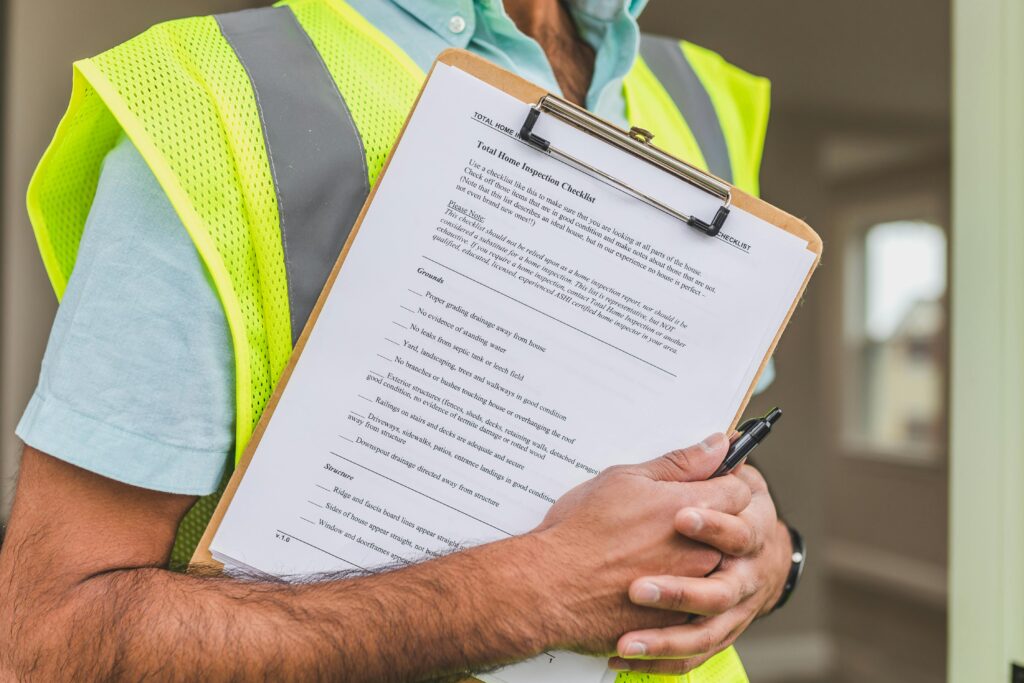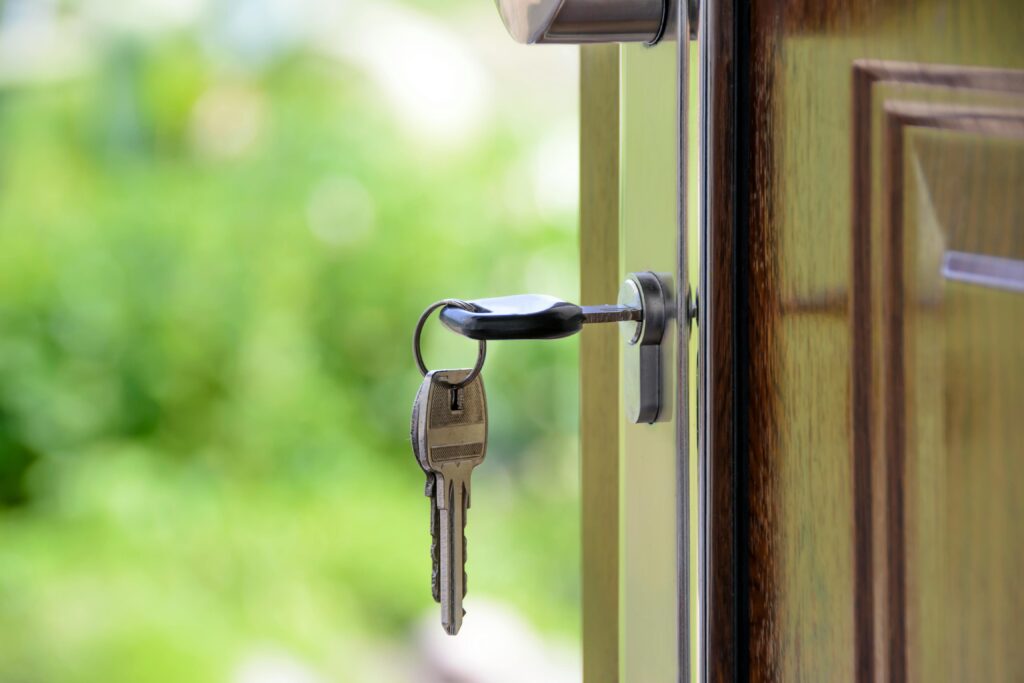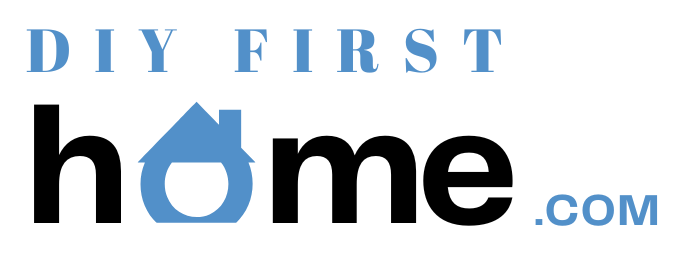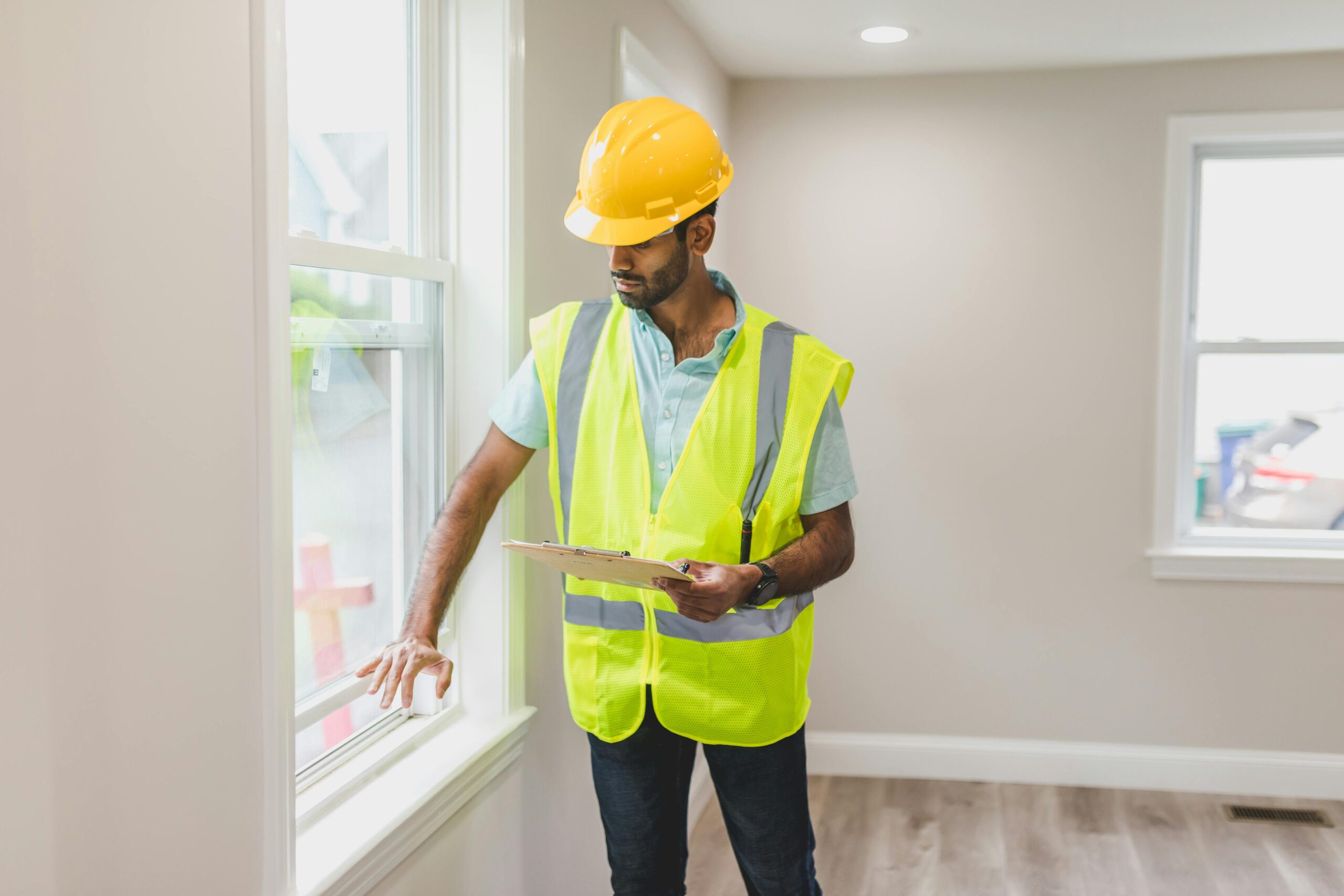Disclosure: This post may contain affiliate links. As an Amazon Associate, I earn from qualifying purchases. If you click through and make a purchase, I may earn a small commission at no extra cost to you.
Buying a home is a significant investment. As a first time homeowner, it’s important to understand all the costs involved. One essential expense is the home inspection cost.
Home inspections provide a detailed look at a property’s condition before you make the big purchase. They help identify potential issues that can save you money and stress in the long run.
But how much do home inspections cost? The price can vary widely. Factors like the home’s size, age, and location play a role.
On average, a home inspection in the U.S. costs between $300 and $500. However, additional services can increase this cost. Services like radon testing or mold inspection add to the total. Personally, my home inspection for my new construction home was $400.
Understanding these costs is vital for budgeting. With all the moving parts of the home buying process, it ensures you’re prepared for all expenses. This guide will help you navigate the complexities of home inspection costs.
Whether you’re buying or selling, a home inspection is a wise investment. In my opinion, it’s a necessity — especially for first-time homebuyers. It offers peace of mind and helps prevent costly surprises down the road.
Join us as we delve into the details of home inspection costs. You’ll gain insights to make informed decisions. Let’s get started on this essential aspect of home buying!

Understanding Home Inspections
Home inspections are a critical part of the property purchase process. They provide an objective evaluation of a home’s condition.
This process involves a certified inspector reviewing various systems and components. The focus is on identifying issues that may require attention. Your realtor can usually provide a recommendation with a trustworthy inspector.
What is a Home Inspection?
A home inspection is a detailed examination of a property’s structure and systems. It assesses the home’s overall condition.
Inspectors evaluate several key areas, including:
- Roof and exterior
- Plumbing and electrical systems
- Heating and cooling systems
- Foundation and structural integrity
- Interior elements such as walls and ceilings
During an inspection, the inspector identifies defects, safety concerns, and maintenance needs. They do not perform repairs or offer guarantees.
The inspection concludes with a comprehensive report. This document provides a clear picture of the home’s state, highlighting any areas needing attention.
It’s important to understand that inspections focus on visual assessments. Inspectors don’t tear down walls or move heavy furniture.
If you can, try to be at the inspection — it’s your chance to ask questions and really get to know the condition of your future home. I couldn’t be there the whole time because of work, but I made it toward the end just to walk through everything with the inspector. It gave me peace of mind and helped me feel more confident moving forward.
Importance of a Home Inspection
Home inspections hold great value for various reasons. They help protect your investment by revealing hidden problems.
First, inspections can uncover issues that are not visible during a casual walkthrough. You may find out about structural problems, faulty wiring, or plumbing leaks.
Second, these inspections provide a baseline for negotiations. You can request repairs or adjust the purchase price based on the report findings.
Moreover, home inspections are tools for future maintenance planning. They can help you plan and prioritize repairs or improvements.
Important benefits of home inspections include:
- Identifying hidden defects
- Assisting in price negotiations
- Informing maintenance planning
Investors, buyers, and even sellers benefit from this valuable assessment. Sellers can choose to conduct pre-listing inspections to address issues beforehand.
Overall, a home inspection offers peace of mind. It equips you with the knowledge needed for a confident purchase decision.
Ultimately, this service helps avoid costly surprises. Informed buyers are empowered to make wise investments in their future homes.
Average Home Inspection Cost
Understanding the average cost of a home inspection can guide your budget planning. Fees vary based on multiple factors, so it’s essential to have realistic expectations.
On average, the cost of a home inspection in the U.S. typically ranges from $300 to $500. However, this figure can fluctuate based on individual circumstances.
Factors influencing this cost include home size, age, and location. Additionally, extra services like radon or mold testing increase the price.
It’s wise to account for these variables when setting your budget. Consider also that prices can differ significantly between cities and states.
Moreover, market conditions can affect home inspection costs. High demand may lead inspectors to raise their fees, while low demand might offer price reductions.
When considering a home inspection, recognize it as a small portion of the overall purchase expense. While seemingly high, the cost is usually less than 1% of the home’s price.
Investing in a quality inspection might save you from future repair expenses. The detailed findings can prevent costly surprises after the deal closes.

How Much Does a Home Inspection Cost?
Determining how much a home inspection costs involves examining multiple elements. Generally, the national average falls between $300 and $500.
This cost, however, is not set in stone. It varies by geographic location, property size, and the inspection’s complexity. Larger homes with more square footage can drive prices higher.
List of factors impacting the inspection cost:
- Home size: Larger homes require longer inspections.
- Age of home: Older homes might need more attention.
- Location: Urban areas often face higher inspection fees.
- Complexity: Special features add to inspection duration and cost.
For customized inspections, pricing models may differ. Specialized equipment or tests, such as thermal imaging for detecting leaks, can raise the fee.
Buying a house is a major commitment. Therefore, budgeting for an inspection is vital to ensure your future home is safe and sound.
Remember, the best approach is to request quotes from multiple inspectors. Compare their services and fees to ensure you’re investing wisely.
Typical Home Inspection Cost Across Regions
Home inspection costs can significantly vary across regions in the U.S. Different states and cities experience distinct price points due to local factors.
For instance, urban locations tend to have higher inspection fees compared to rural areas. The increased cost of living plays a critical role in these differences.
Here’s how regions might impact the cost of a home inspection:
- Northeast: Higher due to older homes needing more evaluation.
- Midwest: Prices can be lower due to less demand.
- South: Costs vary, but average around the national average.
- West: May experience higher costs due to competitive markets.
In the Northeast, where historic properties abound, inspections can be more detailed, increasing fees. Meanwhile, the Midwest’s lower market competition results in fewer costly inspections.
Consider also the type of property when assessing regional costs. Condos might have different fees compared to single-family homes.
Ultimately, contact local inspectors to obtain accurate estimates. This way, you’ll be better prepared for any regional discrepancies in inspection costs.
Factors Influencing the Cost of Home Inspections
Several factors can significantly impact the final cost of a home inspection. Understanding these can help you budget effectively and choose the right inspector. By considering various elements, you can anticipate price variations and make informed decisions.
Size of the Property
The property size is a significant determinant of home inspection costs. Larger homes naturally entail more extensive inspections. Each additional square foot requires careful assessment, increasing the inspection’s duration.
For larger properties, inspectors must evaluate more features. This includes additional rooms, multiple bathrooms, and expansive outdoor spaces. Hence, the more comprehensive the inspection, the higher the cost.
To understand how property size affects inspection fees, consider these aspects:
- Square footage: More area means more time.
- Number of stories: Multi-level homes need more thorough checks.
- Additional structures: Garages or sheds add to the inspection list.
List of size-related factors influencing costs:
- Total rooms: More rooms require more inspection time.
- Attic and basement: Additional areas to examine.
- Land area: Large plots may require landscaping checks.
In essence, as the property size increases, expect the inspection fees to follow suit. Assessing your home’s dimensions and scope of features will provide insight into potential costs.
Age of the Home
The age of a home is another factor impacting inspection costs. Older houses often possess unique challenges that can escalate inspection fees. These homes might have outdated systems requiring careful examination by specialists.
Older homes can contain older wiring, plumbing, and structural elements. These components necessitate detailed inspection, possibly involving specialized tools or expertise. Therefore, inspections of aging homes might be priced higher.
When considering age-related factors, take note of the following:
- Historic value: Historic homes need specialized care and assessment.
- System age: Older HVAC or electrical systems require thorough checks.
- Structural integrity: Older materials may weaken over time.
List of age-related inspection considerations:
- Outdated codes: Older homes might not meet current regulations.
- Materials used: Some older materials can be hazardous (e.g., asbestos).
- Renovation history: Prior updates can affect assessment scope.
In short, an older home’s history and condition are key factors in inspection cost evaluation. Identifying these considerations upfront helps in preparing for financial commitments.
Location Considerations
Location profoundly affects home inspection costs, as geographic factors play a significant role. Variations in local real estate markets and regulations can cause inspection prices to differ significantly.
Urban areas tend to have higher inspection costs than rural locales. The elevated cost of living and competitive housing markets in cities contribute to this pricing trend. Additionally, the availability of inspectors in a location also influences fees.
Key location-related factors that can impact costs:
- Cost of living: Higher costs translate to higher inspection prices.
- Inspector availability: More inspectors might mean competitive pricing.
- Regional regulations: Some areas have stricter inspection standards.
Location considerations include:
- Weather conditions: Certain climates may require specific inspection checks.
- Local building standards: Differing codes can influence inspection depth.
- Proximity to urban centers: Distance from cities might incur travel fees.
Ultimately, the location’s cost dynamics are pivotal in shaping inspection fees. Understanding your area’s unique conditions ensures better financial readiness for inspection costs.
Breakdown of Home Inspection Costs
Understanding the composition of home inspection costs is crucial for budgeting effectively. These costs often include basic inspection fees, additional charges for specialized inspections, and differences between standard and comprehensive inspections.

Basic Home Inspection Fees
Basic home inspection fees typically cover essential assessments of the property’s condition. These include evaluations of the home’s structure, roof, plumbing, and electrical systems. For most houses, these core areas provide a comprehensive overview of the property’s health.
Standard inspections involve a detailed walkthrough of the home. Inspectors look for visible and accessible issues, ensuring major components are functioning well. This process usually involves documentation and a final report outlining any discovered problems.
The basic fee covers:
- Exterior inspection: Including roofing and siding.
- Interior systems: Such as plumbing and electricity.
- Structural assessment: Identifying potential foundational issues.
These assessments are the foundation of any home inspection. Essential services like these allow buyers to understand the property’s condition and potential future expenses.
Additional Fees for Specialized Inspections
Beyond the basic fees, specialized inspections assess unique home features or potential hazards. These inspections may focus on radon levels, termites, or mold, each potentially requiring specific expertise and tools.
Specialized inspections typically add to the total cost. They ensure an in-depth check of areas beyond the scope of a general inspection. If certain conditions are suspected, hiring specialized inspectors for targeted problems can be indispensable.
Specialized inspection types include:
- Mold and air quality tests: Evaluate health-related environmental risks.
- Radon inspections: Measure the home for radon gas levels.
- Termite evaluations: Check for pest infestations affecting the house.
Engaging in these services ensures a safer living space. Having a clear understanding of additional needs can prevent unforeseen expenses in the future.
FAQs about Home Inspection Costs
Home inspections are a critical part of the home buying process. They can be complex due to varying costs and potential additional fees. Here, we address common questions to help clarify these expenses.
– What Should You Expect to Pay?
The cost of a home inspection can vary. Most homebuyers find themselves paying between $300 and $500 for a standard inspection. However, this price can fluctuate due to several factors like location, home size, and inspector experience. Additionally, if your home requires specialized inspections, expect to pay more. It’s always wise to ask for detailed quotes from multiple inspectors to get a sense of the typical costs in your area.
Typical home inspection costs include:
- Basic inspection fee: Covers essential evaluations.
- Extra fees: For any specialized inspections.
- Geographic variations: Costs may vary greatly by region.
Understanding these components gives you better financial preparedness as you approach the inspection phase.
– Are Home Inspections Worth the Cost?
Home inspections are indeed worth the investment. They provide an unbiased evaluation of the property’s current condition. This service can reveal hidden issues that could turn into expensive repairs later on. In this regard, they often save buyers money in the long run by highlighting problems before closing the deal.
Benefits of a home inspection include:
- Revealing hidden damage: Ensures all issues are identified early.
- Negotiation leverage: Allows buyers to request repairs or adjust the price.
- Future planning: Helps prioritize future repairs and maintenance.
Ultimately, inspections provide peace of mind and help buyers make informed decisions.
– Who pays for the Home Inspection?
Typically, the buyer is responsible for paying for the home inspection. This is because they stand to benefit most from the detailed knowledge of the home’s condition. The expense is paid upfront, usually upon completion of the inspection service.
Payment responsibility considerations:
- Buyer’s responsibility: Standard practice in most transactions.
- Seller-paid options: Some sellers offer pre-listing inspections.
- Negotiable terms: Costs can sometimes be a point of negotiation.
Understanding who pays can help set clear expectations for budgeting during the home buying process. Knowing these details can streamline the entire purchasing journey and prevent surprises at closing.

Conclusion
Understanding the cost of a home inspection is essential for any homebuyer or seller. It’s a small fee compared to the potential savings and peace of mind it offers. This guide highlighted the many factors that influence inspection costs, from property size to geographic location. By examining these variables, buyers can prepare better financially and avoid unforeseen expenses. A thorough inspection reveals the true condition of a home, allowing for informed buying decisions.
To get the most value, it’s important to choose a qualified, experienced inspector. Compare services and ask questions to ensure you understand what is included. Don’t hesitate to invest in additional specialized inspections if needed. These can uncover issues not caught in a standard evaluation, such as radon or mold. A wise buyer knows the inspection is an investment toward future financial security.
Inspectors offer varying packages and deals, so do your research. Always ask for comprehensive reports with details about every significant finding.
Next Steps in the Home Buying Process
Once the inspection is complete, review the report thoroughly. Discuss findings with your agent to determine if any issues require negotiation with the seller. Decide if repairs, price reductions, or both might be warranted based on inspection results. Prepare to address any significant problems that could hinder closing.
The inspection stage sets the groundwork for informed decision-making. With this knowledge, you can proceed confidently toward closing, ensuring all future obligations are understood and manageable.

